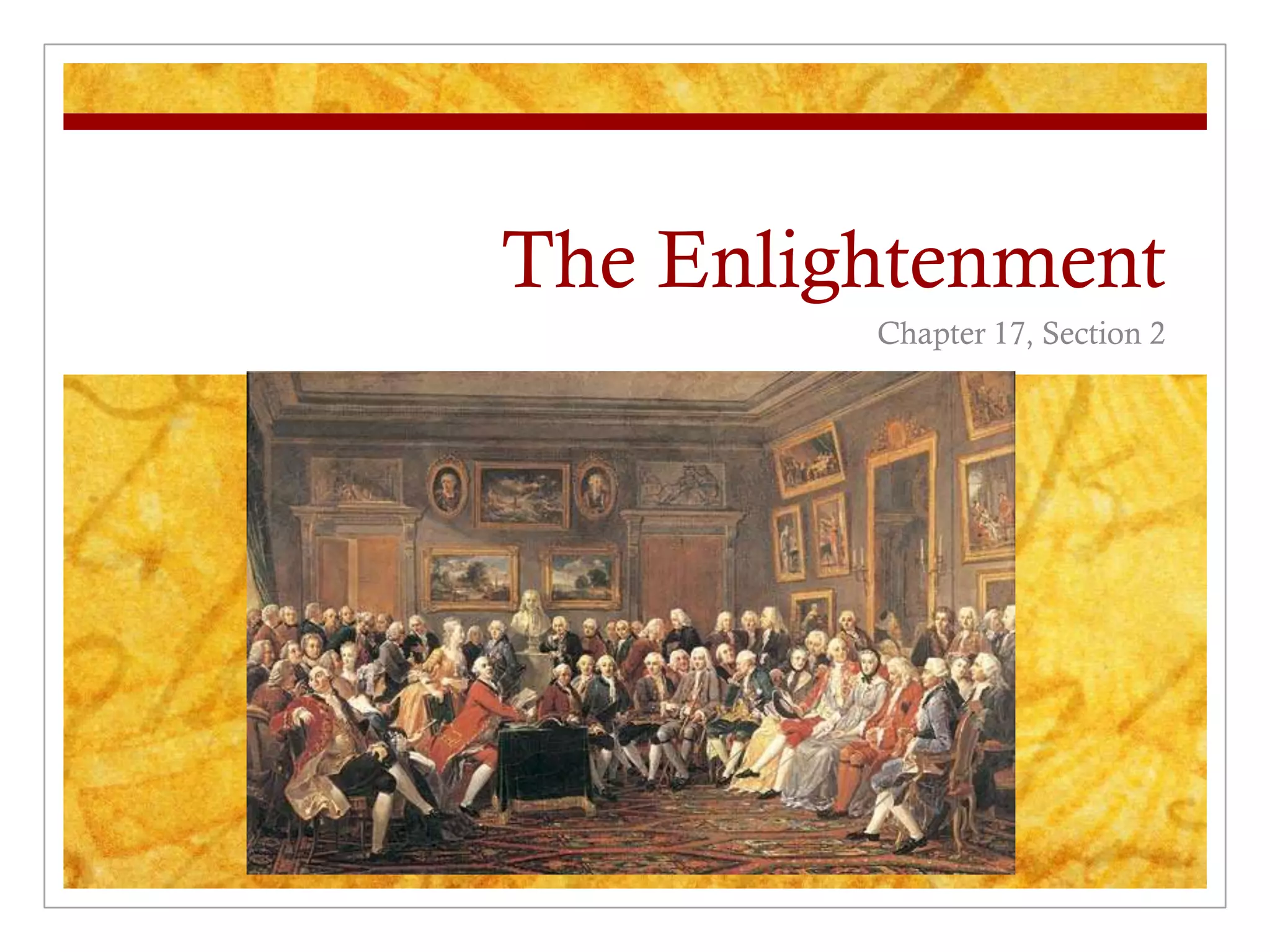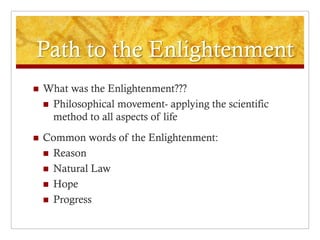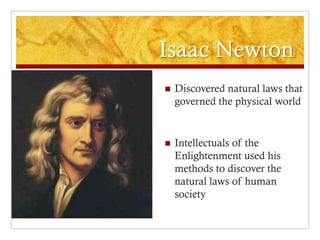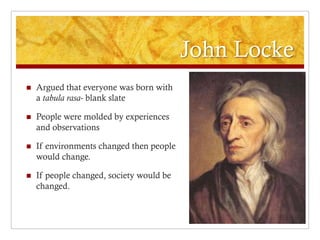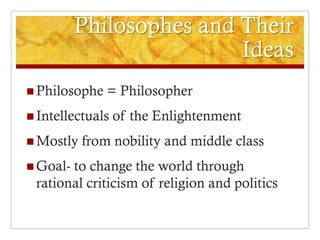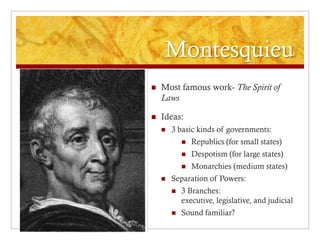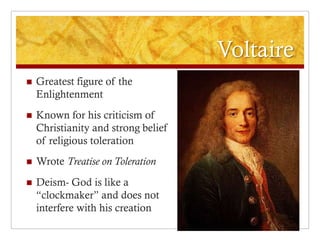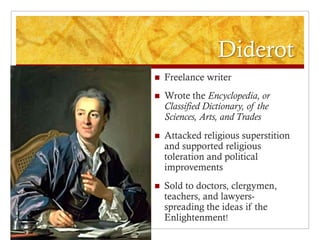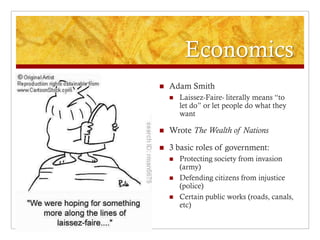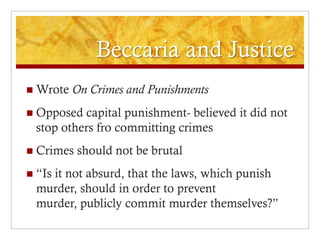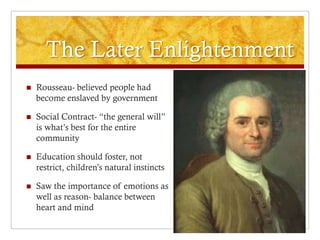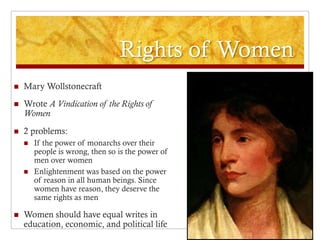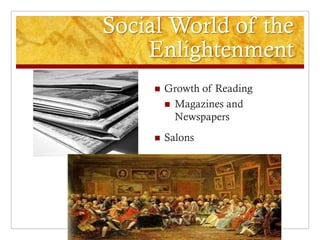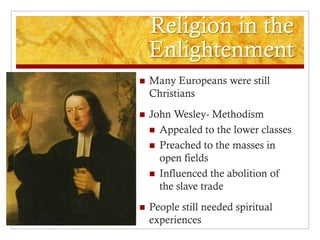The Enlightenment was a philosophical movement that applied scientific reasoning to human society. Key thinkers like Isaac Newton, John Locke, and philosophers called "Philosophes" used reason to critique religious and political institutions and argue for ideas like separation of powers, religious tolerance, and equality. Their works spread new ideas through growing publications and salons, though most Europeans still identified as Christian. The Enlightenment had wide-ranging effects on science, politics, economics, and society.
